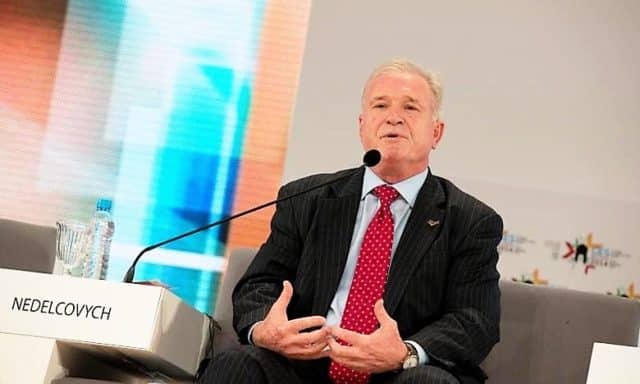Africa’s long-time, largest oil producer is wavering.
Africa’s long-time, largest oil producer is wavering. For six months in a row (March-August), Nigeria landed in the number two spot of the continent’s largest producers of crude, falling behind Angola, according to OPEC (Organization of the Petroleum Exporting Countries) data.
Oil production levels provide insight into the stability – or instability – of the two countries, which are heavily reliant on oil exports for federal revenue. In Nigeria, at least 90 percent of export revenues come from oil, and the oil industry provides the government with more than 70 percent of its income. In Angola, the oil and gas sector accounts for 95 percent of exports and 45 percent of GDP.
Nigeria’s lagging behind Angola this year points to three factors of instability in one of America’s strongest allies in Africa. The first is militancy in the Niger Delta region of Nigeria’s southeast. The Niger Delta Avengers (NDA) – the main militant group – continue to blow up pipelines and attack other oil infrastructure. The group just last week attacked an oil pipeline near Bonny island.
Director of the CSIS Africa Program, Jennifer Cooke, tells The Cipher Brief it is largely this militancy that is to blame for the recent drop in Nigerian oil production. “Nigeria has gone from 2.2 million barrels per day to 1.4 million barrels per day, its lowest production level in a long time,” she says, adding, “That really is because of this insecurity – surgical attacks that have destroyed major pipelines and shut down oil export terminals.”
A second factor of instability is one which actually aims to bring about future stability: Nigerian President Muhammadu Buhari’s crackdown on corruption in the petroleum sector. Due to both this crackdown and the drop in global oil prices, businessmen and politicians involved in the oil industry are seeing their profits wither away.
Matthew Page, a fellow at the Council on Foreign Relations and leading Nigeria expert, explains, “The Nigerian political system has essentially been designed to divvy up oil rents. So when those oil rents disappear, the system begins to really grind to a halt.”
Lastly, Nigeria has yet to pass the Petroleum Industry Bill, creating an uncertain policy landscape for potential investors in Nigerian oil. A source working in Nigeria’s oil industry, who asked to remain anonymous due to the sensitive nature of the work, tells The Cipher Brief, “The Petroleum Industry Bill (PIB), which was supposed to revolutionize the industry and attract more investors, has been at the National Assembly (our Congress) for a long time, without much progress. This has inadvertently stalled critical investments in the sector. All this [including the Niger Delta militancy] has led to Angola [taking] the lead position in Africa.”
This is not to say that Angola – another U.S. ally – is much more stable than Nigeria. Although it lacks any kind of militancy aimed at the energy sector and appears to have a more stable fiscal regime and investment climate, compared to its northern neighbor, the country is facing two potential crises – one political and the other economic.
Angolan President José Eduardo dos Santos has promised to step down in 2018, terminating the reign of Africa’s second-longest serving leader. As with any similar power transition, the nation faces the risk of instability.
In addition, Angola’s state-owned oil company Sonangol faces a growing fiscal crisis in light of the downturn in oil prices. Sonangol’s 2015 financial reports show that profits are down 77 percent and export revenues dropped by 50 percent, says Mohammad Darwazah, Senior Middle East and Africa Analyst at Medley Global Advisors.
Darwazah tells The Cipher Brief this will “have a significant impact on the country’s economic future.”
If oil prices remain low, both Nigeria and Angola will face increasing instability, due to the governments’ reliance on oil income and the time gap in severing that reliance. For example, Nigeria under the Buhari administration has a grand plan to diversify the economy, but as Page notes, that’s easier said than done. It is made even more difficult by the fact that the country is trying to diversify during an economically tight time, when there is less capital to make investments in other sectors, comments Page.
Instability in these allies is not good for the United States. Cooke points out that “insecurity and instability in Nigeria has huge ripple effects across the West African region,” an area with substantial current and potential future American business presence.
Kaitlin Lavinder is a reporter at The Cipher Brief.
Source: Growing Instability in Africa’s Top Two Oil Producers | The Cipher Brief














